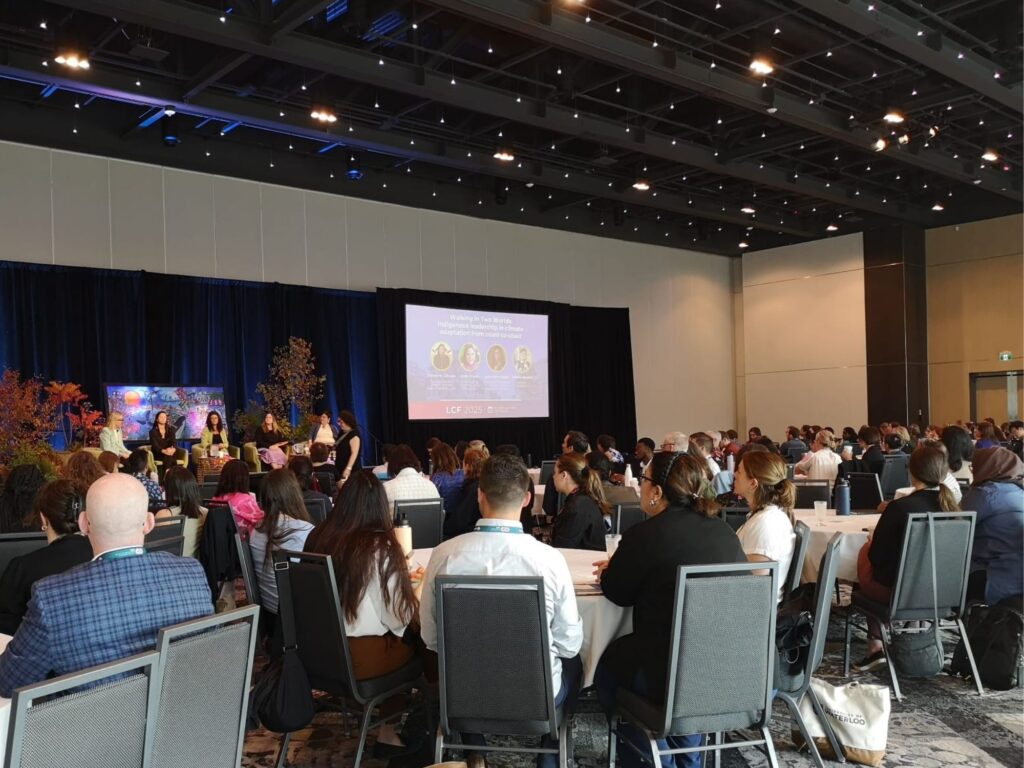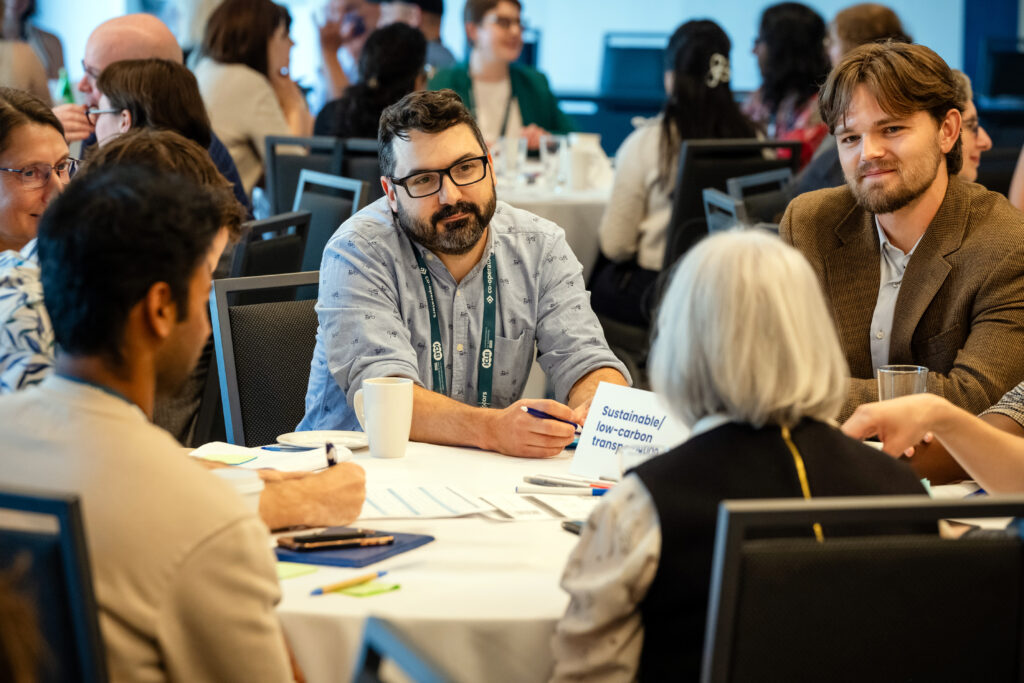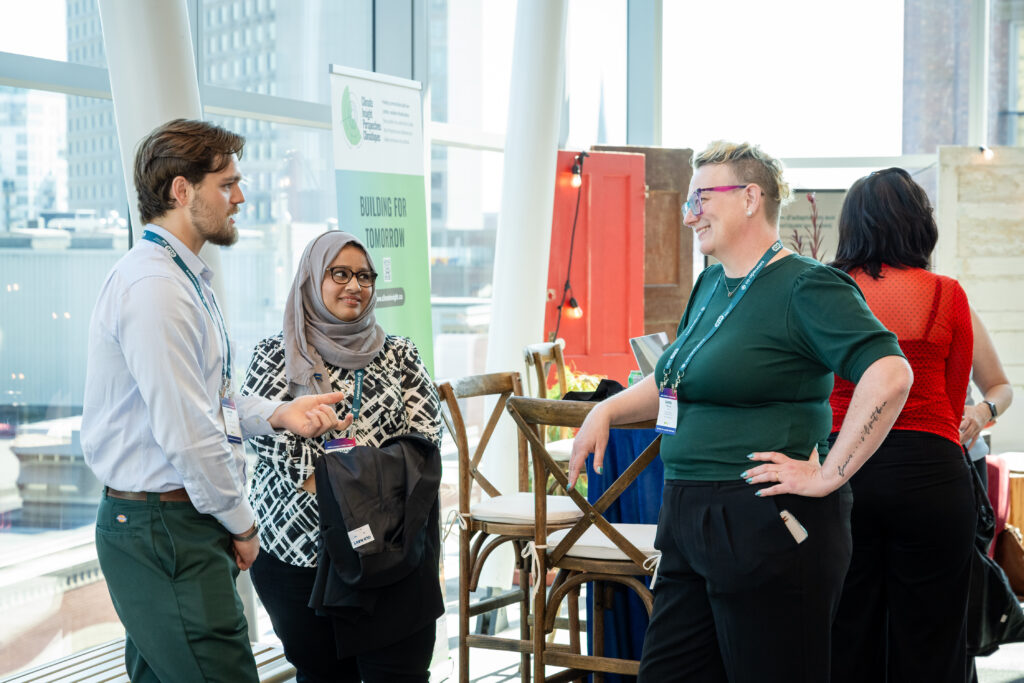In October, I attended the Livable Cities Forum (LCF) in Halifax, Nova Scotia. Hosted by ICLEI Canada, this 3-day event is a highlight in the calendars of government staff, Indigenous community leaders, elected officials, and researchers focused on climate and sustainability across Canada.
This year’s forum was themed as Acting on Climate Together. Not only a nod to Halifax’s climate action plan, HalifACT, this emblemized how partnerships are central to climate action in increasingly inflamed politics, waning budgets, and vulnerable communities. These partnerships, both among practitioners and between them and the communities they serve, were on proud display: candid workshop anecdotes of navigating community engagement from municipal staff, colleagues from different coasts laughing over 8 am coffee and bagels, or selfies holding each other’s nametags as a stand-in for exchanged business cards. There was an unabashed ownership of both the grief, exhaustion and frustration that can come with the job in climate action, as well as the deep-rooted friendship that is sprouted or watered at events like this that gives peers fresh air and ideas to take home.
I attended expecting to colour the context of my research on amplifying nature-based climate solutions in Canadian cities, as well as learn what tools are (not) being used, what conversations are (not) being had, and what resources are compatible and palatable with the professionals putting this research to work in communities. Both expectations were met cumulatively across dense concurrent sessions, or enthusiastic conversations on the walk between them. Although I didn’t attend in any formal capacity with a research group or lab, University of Waterloo had a strong presence at LCF through exhibitors like Partners for Action, Waterloo Climate Institute, or N-ZAP; or peers and alumni bumping into you and handing you a drink ticket during the reception or happy hour.
Highlights of my experience at LCF included the immersive session on ‘mobilizing the movable middle’, the lively ‘Kitchen Cèilidh’, the abundance of nature-based solutions discussions in workshops and at exhibitor booths. I was especially inspired by wealth of presentations, plenaries, performances and perspectives from Indigenous leaders, artists, and Elders, so much so that their presence felt rightfully commonplace as opposed to novel or rare.
Through the diverse sessions and exhibitors, some key themes emerged:
- Nature-based solutions as low-carbon resilience
- Renovating climate communications and engagement
- Financial tools for local climate action
- Indigenous knowledge, sovereignty, and reconciliation
- Climate-ready housing and retrofitting resilient infrastructure
The diversity and quantity of the sessions allowed for these themes to overlap and interconnect in ways that I’ll be chewing on for weeks to come. Although there were a few points I found these themes (or their advocates) in contention, I think these forums, especially LCF, are ground zero for where the research, governance, impact, and equity of climate and sustainability solutions can, and should, be scrutinized by those putting them into action.
This raises an important question: how often are these conversations being brought into spaces where climate and sustainability aren’t already the focus? Are the same thoughtful, solution-driven discussions happening at conferences for asset managers, landscapers, accountants, insurers, and public administrators? If the theme of this year’s Forum is Acting on Climate Together, I hope the same energy devoted to strengthening connections within the climate and sustainability community is equally extended to engaging those who may not yet see themselves as part of it.
Being able to attend the 2025 LCF was an incredible privilege and will undoubtedly be a highlight of my time as a graduate student at the University of Waterloo. It reaffirmed that truly effective climate and sustainability research is inherently transdisciplinary: it thrives where scholars, practitioners, and community leaders work shoulder-to-shoulder in co-creating solutions that are as rigorous as they are grounded in experience. It is in these partnerships, built on mutual learning and shared purpose, that research transcends journals and conferences to tangibly building more low carbon resilience in communities across Canada.
By: Kayne Boyall, MSc Geography student
Photo credit: Michelle Doucette
Artwork Credit: Holly Carr






